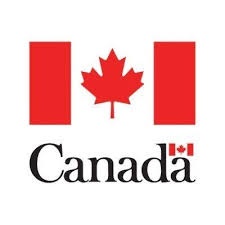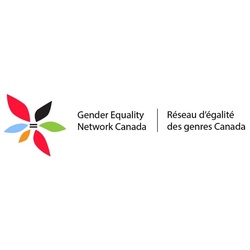
Open
Quantum Leap
Last Update: January 14, 2026
Canada
Funds collaborative translational biopharmaceutical R&D between academia and industry
Grant and Funding
At a glance
Funding available
Financing goals
Research and experimental development
Selling in a new market
Eligible Funding
- Maximum amount : 1,500,000 $
- Minimum amount : 500,000 $
- Up to 33% of project cost
Timeline
- Open Date : January 14, 2026
Eligible candidates
Eligible Industries
- Health care and social assistance
Location
- Canada
Legal structures
- Non-profit
- Public or Parapublic institution
- For-profit business
Annual revenue
- All revenue ranges
Organisation size
- All organization sizes
Audience
- Canadians
- Startups
Non-profit candidates
Sector of operation
- Higher Education
- Research
- Business Associations
Target groups
- Business owners / entrepreneurs
- Academia / students
Revenue structures
- All structures
Scope
- National
- International
Overview
Quantum Leap provides funding usually representing one-third of project costs for Canadian SMEs and public research institutions, with typical total project budgets ranging from $500,000 to $1,500,000. The program supports innovative translational biopharmaceutical R&D projects that develop enabling technologies, pioneering platforms or therapeutic methods to improve and accelerate drug discovery and development, including eligible expenses such as research staff salaries, consumables, small equipment (under $25,000), travel, knowledge dissemination and certain intellectual property costs.
Activities funded
- Collaborative translational R&D projects between Canadian SMEs, public research institutions and large biopharmaceutical companies to develop innovative drug discovery and development technologies.
- Development of enabling technologies or pioneering platforms that significantly improve or accelerate the discovery and development of safer, more effective drugs.
- Creation of innovative therapeutic methods that can impact multiple stages of the biopharmaceutical R&D process across a wide range of therapeutic indications.
- Projects designed to generate concrete technological deliverables that CQDM pharmaceutical members can use directly in their research and development activities.
- Industry–academic joint projects that position new technologies competitively at the international level and support future commercial partnerships in the biopharmaceutical sector.
Examples of admissible projects:
$ 1,000,000
Implementation of a high-throughput screening system for drug candidates
$ 900,000
Creation of a computational platform for drug-target interaction studies
$ 750,000
Development of AI-driven drug discovery platform
$ 1,100,000
Development of genomic analysis tools for personalized medicine
$ 850,000
Creation of a biotechnological tool for faster drug development
$ 900,000
Design of a nanotechnology-based drug delivery system
Eligibility
- The applicant must be a Canadian small or medium-sized enterprise (SME) or a public research institution (such as a university or affiliated research centre).
- The project must be an innovative translational R&D initiative in biopharmaceutical research carried out in collaboration with one or more large biopharmaceutical organizations.
- The project must focus on enabling technologies, pioneering platforms or innovative therapeutic approaches that improve, facilitate or significantly accelerate drug discovery and development.
- The project must aim to generate tangible deliverables that CQDM’s pharmaceutical members can use at the end of the project.
- The applicant must be able to secure counterpart funding from other sources (private, semi-private or not-for-profit public organizations), in addition to CQDM and its pharmaceutical members.
Who is eligible?
- Canadian small and medium-sized enterprises (SMEs)
- Canadian public research institutions
- Canadian universities
Eligible expenses
- Salaries and social benefits for research personnel working on the project (technicians, assistants, research associates, post-doctoral researchers and students).
- Equipment, consumables and laboratory supplies required for the project, including platform usage fees and animal facility fees.
- Travel costs directly linked to the project (project meetings, collaborations, conferences) and expenses related to dissemination of research results.
- Costs related to intellectual property, such as patent application fees and patent maintenance fees for the duration of the project.
- Purchase or rental of small equipment items with a maximum unit value of $25,000.
- Payments to subcontracted companies that are not project partners, when their contribution is essential to the project and cannot be carried out by the SME or research institution.
Eligible geographic areas
- Companies and public research institutions located anywhere in Canada.
Selection criteria
- Impact on the development of new drugs and ability to significantly advance biopharmaceutical R&D.
- Scientific excellence, including the innovative nature of the research and quality of the experimental plan.
- Feasibility of the project, based on current technology status, preliminary data, clear milestones, deliverables and project management.
- Positioning and competitive advantage compared to existing or emerging international technologies, and potential to transform the biopharmaceutical field.
- Marketing potential and economic benefits, including a credible development and commercialization plan, required funding, expected timeline, and alignment with partners’ business objectives.
How to apply
1
Fill Non-Confidential FormDownload and complete the summarized non-confidential form.
Ensure all required fields and information are provided accurately.
2
Submit Preliminary ApplicationEmail the completed form to [email protected].
- Submission can be done at any time.
- Contact Jesse Paterson for any queries about the application process.
3
Video PresentationIf pre-selected, prepare a video presentation of your project.
The video will be shared with CQDM's pharmaceutical members.
4
Comprehensive ApplicationInvited candidates will prepare a full confidential application.
Incorporate feedback, questions, and concerns from pharmaceutical members.
Additional information
- The next known selection round is scheduled for February 12, 2026.
- Projects are developed in close collaboration with representatives from one or more CQDM pharmaceutical members, who may help refine the final project and experimental design.
- Selected candidates must sign a research agreement with CQDM within three months of funding confirmation, including milestones, timelines, and deliverables.
- Intellectual property remains with the researchers or their institutions, while participating pharmaceutical members typically obtain privileged, usually non-exclusive, R&D access to resulting technologies.
Apply to this program
Frequently Asked Questions about the Quantum Leap Program
Here are answers to the most common questions about the Quantum Leap. This section explains what the program is, how much funding is available, eligibility requirements, application deadlines, and other important details to help you determine if this grant is right for your business.
What is the Quantum Leap?
How much funding can be received?
Who is eligible for the Quantum Leap program?
What expenses are eligible under Quantum Leap?
Who can I contact for more information about the Quantum Leap?
Where is the Quantum Leap available?
Who are the financial supporters of the Quantum Leap?
Apply to this program
More programs like this

Grant and FundingOpen
AI-Powered Supply Chains Cluster (Scale AI)
Global Innovation Clusters (GIC)Funding to enhance supply chains with AI

Researchers And FacilitiesPartnering and CollaborationWage Subsidies And InternsOpen
Mitacs Accelerate
MitacsConnect organizations with academia for research and innovation collaboration

Grant and FundingClosed
Canada Service Corps – Service Placements Regional Stream
Employment and Social Development Canada (ESDC)Funding for organizations to develop youth volunteer service placements

Grant and FundingClosed
ISED — Artificial intelligence (AI)
Innovation, Science and Economic Development Canada (ISED)Supports testing innovative AI prototypes for Canadian government needs

Grant and FundingOpen
Active Transportation Fund
Housing, Infrastructure and Communities CanadaSupports infrastructure projects for safer, more accessible active transportation

Partnering and CollaborationGrant and Fundingarchived
Equality for Sex, Sexual Orientation, Gender Identity and Expression Program
Women and Gender Equality Canada (WAGE)Supports equality initiatives for sex, sexual orientation, and gender identity

Grant and FundingClosed
Crime Prevention Action Fund (CPAF)
Public Safety Canada (PSC)Supports evidence-based crime prevention initiatives for at-risk communities

Grant and FundingClosed
Substance Use and Addictions Program (SUAP)
Health CanadaSupports innovative projects addressing substance use prevention and treatment

Grant and FundingOpen
Humanitarian Workforce (HWF) - COVID-19 and other large-scale emergencies
Public Safety Canada (PSC)Supports NGOs in emergency response and capacity building activities

Grant and FundingClosed
Age Well at Home (AWAH) - In-Home Support Pilot Project Stream
Employment and Social Development Canada (ESDC)Supports volunteer-based home services for vulnerable Canadian seniors
Sign up to our platform to access the Quantum Leap information sheet for free
Get access to 4,000+ programs, practical guides, personalized alerts, and an AI assistant to support your grant applications.